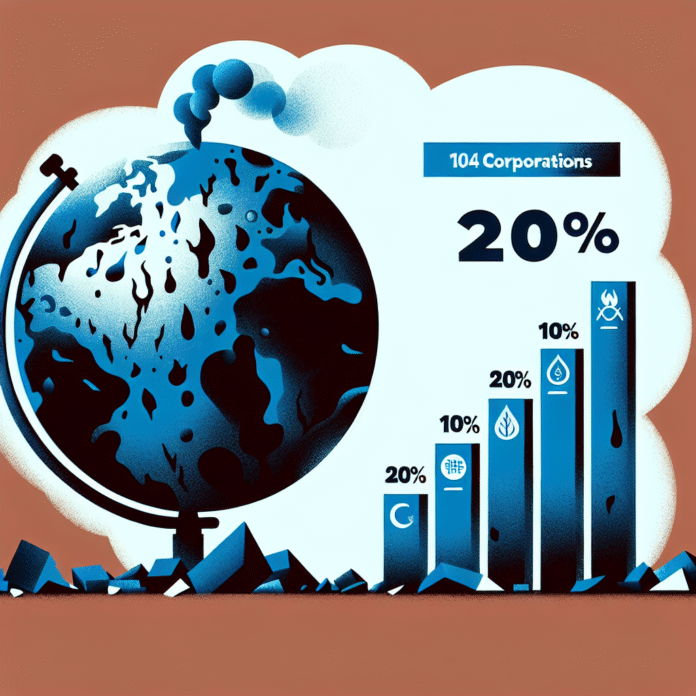Study Links 104 Companies to Major Environmental Conflicts
Study Reveals 104 Companies Responsible for 20% of Global Environmental Conflicts
A recent study has highlighted that a significant portion of global environmental conflicts—approximately 20%—can be traced back to just 104 companies. This alarming statistic underscores the profound impact that corporate activities can have on the environment and local communities.
The Scope of Environmental Conflicts
Environmental conflicts often arise when corporate interests clash with the rights of local communities and the preservation of natural resources. These disputes can involve a variety of industries, including mining, agriculture, forestry, and energy production. The consequences of such conflicts can be dire, leading to environmental degradation, loss of biodiversity, and social unrest. Communities often find themselves in opposition to companies that prioritize profit over sustainable practices, resulting in a struggle for resources and rights.
The Role of Corporations
The study identifies 104 multinational corporations that are disproportionately implicated in these conflicts. These companies operate across various sectors and regions, often prioritizing expansion and profit margins over environmental stewardship and community wellbeing. Their activities, including land acquisition for agriculture or extraction of natural resources, frequently lead to the displacement of local populations and destruction of vital ecosystems.
Impacts on Local Communities
The effects of environmental conflicts are far-reaching. Local communities, particularly indigenous populations, often bear the brunt of these disputes. They may experience loss of livelihoods, cultural dislocation, and health issues due to pollution and habitat destruction. Moreover, these conflicts can lead to violence and human rights abuses as communities stand up against corporate actions that threaten their existence.
Global Response and Accountability
In response to these alarming trends, there is a growing call for greater corporate accountability and more robust environmental regulations. NGOs and community organizations are advocating for transparency in corporate practices and demanding that companies adopt sustainable and ethical practices. Furthermore, international bodies are increasingly recognizing the need to address corporate responsibility in the context of environmental protection.
Future Directions
Moving forward, it is crucial for companies to integrate sustainable practices into their business models. This includes engaging with local communities, conducting thorough environmental impact assessments, and adhering to international environmental standards. Governments and regulatory bodies also play a vital role in enforcing laws that protect the environment and indigenous rights.
Conclusion
The findings of this study serve as a wake-up call for both corporations and policymakers. By recognizing the substantial influence that a small number of companies have on global environmental conflicts, stakeholders can work towards more sustainable and equitable solutions. It is imperative that we strive for a balance between economic development and environmental protection to ensure a healthier planet for future generations.


